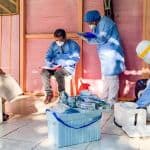Adapt or Die: Accelerating Growth Amid a Rapidly Changing Energy Landscape
The past decade has seen incredible progress in the clean cooking sector – growth in both focus and wisdom. The World Health Organization has established particulate matter to guide the potential health impacts of cookstoves. Key industry group players have joined together and have agreed on ISO clean cooking standards, defining the qualifications for a clean cookstove. Finally, bilateral organizations and the development community have recognized the critical need to include clean cooking to achieve Sustainable Development Goal targets.
However, this growth has also come with many industry changes and the goal of a market-based approach to clean cooking has seen many challenges. With a product-focused industry, success has been difficult to truly measure. Consumers desire aspirational cooking products, but have trouble affording the higher price tag. New cooking standards promote the cleanest cookstoves (Tier 4), but few solutions reach these standards. As a result, only some social enterprises have been able to reach profitability, and after years of investment, there are fewer and fewer companies in the market.
The increasing level of knowledge in the clean cooking sector and improvement in guidelines about how to develop cleaner technologies, as well as how to design and choose appropriate technologies, has caused new companies to enter the market and old companies to adapt or die.
Knowing the customer unlocks growth
Envirofit is a social enterprise that innovates and scales technology solutions to create energy access for families in emerging markets and has been successful in growing a profitable business that has brought clean cooking solutions to 10 million people in communities across the globe.
Our ability to not only survive, but to thrive in a changing landscape has come from listening to customers and adapting technologies to meet new international standards of cooking. Initially, Envirofit focused on improving customers’ current solutions – making wood and charcoal cooking, cleaner, more efficient and affordable. With consumer-based design, this strategy enabled rapid growth, as it required little behavior change from current cooking practices; however, the value proposition to switch to a cleaner cookstove was still a challenge. What customers wanted was an aspirational experience, to have the ability to cook with the same gas and electric means as those in high-income countries. Based on feedback from consumers, Envirofit began investigating methods to make cleaner fuels more accessible.
Learning from Other Industries and Reading the Market
At the same time as Envirofit began investigating cleaner cooking fuels, the market for pay-as-you-go solar products was rapidly expanding across East Africa – proving that the market was ready for IoT technologies. Lessons from the solar lighting industry enabled Envirofit to innovate solutions for the clean cooking industry, and our company spent years developing SmartMeters that enable customers to pay-as-you-cook with gas. With the launch of SmartGas in 2018, the initiative proved itself correctly aligned with consumers desires. For the first time, Envirofit saw market pull for a product in the clean cooking industry and has enrolled thousands of customers for our SmartGas service in the first six months. IoT technology and industry learnings helped Envirofit overcome the number one challenge in clean cooking: affordability. This success has attracted further investment to continue expansion of smart cooking technologies.
Sticking to the Mission
Even amidst all the excitement from the success of SmartGas, the mission to serve customers at the base of the economic pyramid has not been compromised. In reality, SmartGas is designed for urban consumers who currently cook with charcoal and pay for cooking fuel. This is half the population in sub-Saharan Africa, according to the World Bank. While Envirofit will continue to expand SmartGas in urban areas to reach low-income families, those living in rural areas still need clean cooking solutions.
While development has reduced the percentage of the global population cooking with inefficient cookstoves, population growth is outpacing resolution – meaning the same absolute number of people are cooking with biomass as previously and the number of people relying on biomass for cooking has grown by 400 million people. Rural access to clean cooking has only marginally decreased – by 0.4 percentage points annually between 2014 and 2016. While WHO guidelines prioritize clean fuel solutions, the organization also recognizes clean cooking fuel adoption is not achievable with short-medium term solutions and that improved cookstoves that meet specified emissions targets and are used exclusively should be pursued for an interim transition to cleaner fuels. Thus, improved biomass stoves are still required to service rural populations and provide an interim solution until infrastructure for clean fuels is accessible.
Addressing this challenge, we at Envirofit have continued to expand its clean cookstove operations while shifting the priority to rural communities. Through this diversified strategy, Envirofit is able to offer culturally appropriate and realistic solutions to families as they transition up the energy ladder from wood to charcoal to LPG.
While the landscape for clean cooking has seen dramatic changes over the past few years, it has led to a clarity of clean cooking standards and an opportunity for growth for the companies that can adapt and change. Reacting to the market and learning lessons from other industries leads to transformational progress. Ensuring the customer remains the main priority of the business will not only keep the mission focused but will lead to wide scale adoption and scale.
Jessica Alderman is the Director of Communications and Ron Bills is the CEO of Envirofit International.
Image provided by organization.
- Categories
- Energy, Social Enterprise



